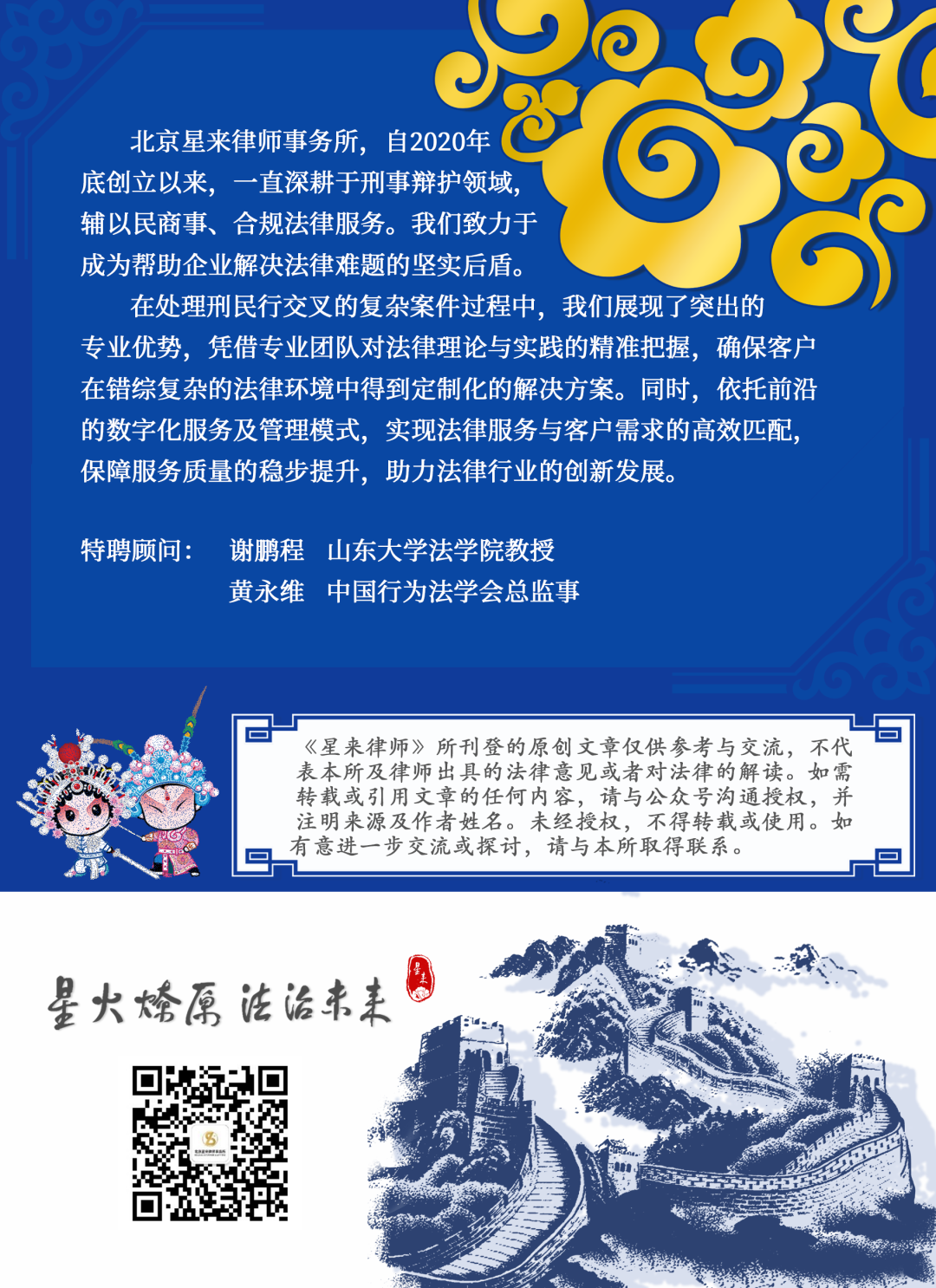
Case Summary
On March 30, 2016, the Anti-Smuggling Bureau of the S Province J City Customs Office referred the case of H Culture Company and its general manager, Chen Moumou, along with others, to the city’s People’s Procuratorate for review and prosecution on suspicion of smuggling ordinary goods and articles. The charges allege that between April and July 2014, H Culture Company, driven by illegal profits, was directed by suspects Chen Moumou, Tai Moumou, and others, with specific implementation carried out by Li Moumou and Zhou Moumou. They allegedly evaded customs supervision by underreporting the value of goods, thereby illegally avoiding import taxes. Together with suspect Sang Mou (a foreign national), they smuggled 70 pieces of Italian oil paintings and other art objects into the country, with the case valued at over 30 million yuan and resulting in tax evasion totaling more than 3.8 million yuan.
Facing unfavorable charges, the defense attorney carefully reviewed the case files, interviewed informed witnesses to gather evidence, clarified the facts of the case, and conducted a thorough analysis to develop a strategy for pleading not guilty. A written defense statement was submitted, followed by multiple face-to-face discussions with the prosecution. Ultimately, the prosecution accepted the defense arguments, concluding that the evidence was insufficient and the facts unclear—thus failing to meet the legal criteria for prosecution. As a result, on December 22, 2017, H Company and individuals like Chen Moumou were officially cleared of charges through a decision of non-prosecution, as mandated by law. Subsequently, the Customs Anti-Smuggling Bureau requested a review and reconsideration of the non-prosecution decision, but the original ruling was upheld without changes.
Note: In early 2019, the case was awarded one of the Top 10 Classic Cases in an evaluation event jointly organized by the Institute of Legal Practice at Renmin University of China and Deheng Law Firm.

Expert recommendation reason:

The defense during the review and prosecution stage differs from that in the trial phase, as evidence at this stage has yet to be thoroughly examined and organized by the prosecution—leaving it somewhat messy and unclear. Unlike the trial phase, where the prosecution's line of reasoning is typically more precise and well-articulated, here the charges outlined in the indictment are often brief and lack detailed explanations linking specific facts to the corresponding evidence. This creates significant challenges for the defense, forcing them to carefully analyze and pinpoint critical questions: How is the prosecution constructing its chain of evidence? What is the underlying logic behind the charges? And where exactly does the prosecution’s focus lie? Only after thoroughly addressing these issues can the defense mount a truly effective strategy. The case handler’s notes vividly illustrate this stage of the defense process, offering both insight and engaging perspectives. At the same time, they remind us that achieving an ideal, effective defense requires at least the following key steps:
First, ensure your line of defense is clear to avoid taking unnecessary detours. When a lawyer first takes on a case, they often find themselves confronted with a host of questions and requests from the client, along with an overwhelming mountain of voluminous case files. In such situations, knowing where to begin is a true test of a lawyer’s experience and wisdom. In this particular case, the attorney assigned to the matter remained calm and composed amid the apparent complexity, quickly formulating a clear and structured approach: identifying the prosecution’s line of reasoning—spotting potential flaws, raising well-founded doubts—investigating the truth—summarizing key defense points—and ultimately presenting compelling arguments while engaging in constructive negotiations with the prosecuting authorities. It was nothing short of a flawless roadmap! Armed with this strategic plan, the lawyer tackled the case methodically, following each step precisely—avoiding aimless, frantic efforts that could lead to inefficiency—and ultimately enhancing the overall effectiveness of the defense work.
Second, know yourself and your opponent—thoroughly uncover the prosecution's tactics and strategies. As the ancient saying goes, "Know yourself and know your enemy, and you can fight a hundred battles without danger." To achieve an effective and successful defense, the first step is to thoroughly analyze your opponent—examining their accusations, understanding their logical reasoning, assessing the strength of their evidence, evaluating their legal expertise, and considering any case-specific environmental factors. Only by gaining a deep understanding of the other side can you tailor your strategy precisely, addressing their weaknesses head-on and delivering a targeted, well-prepared defense. In this case, the attorney in charge relied precisely on this approach: starting with a meticulous examination of the prosecution’s accusatory logic, they systematically reviewed every piece of evidence in the case. During this process, they uncovered critical flaws and inconsistencies within the prosecution’s argument, gradually exposing its vulnerabilities. This not only strengthened their own position but also laid a solid foundation for crafting a robust defense strategy and identifying key points to emphasize during the trial. Unfortunately, in practice, some lawyers fail to invest sufficient time and effort into thoroughly studying the case—especially neglecting to carefully dissect their opponent’s accusatory logic. Instead, they rely too heavily on intuition or past experiences, often presenting vague, unfocused arguments that miss the mark entirely. As a result, these defenses rarely yield the desired outcomes. The approach taken by the defense team in this case, therefore, serves as a valuable model worthy of careful study and emulation by legal professionals striving for excellence in advocacy.
Third, strike a balance between breaking conventions and establishing new ones—tell your own story effectively. When it comes to defense, some lawyers fall into a common misconception: they believe that defending simply means pointing out flaws in the prosecution’s case—once those flaws are identified, they think the job is done. But this approach is fundamentally flawed. While identifying the prosecution’s weaknesses certainly addresses the "destruction" aspect of the defense, in some cases, merely "tearing down" isn’t enough. A strong defense also requires "building up"—presenting an alternative narrative that highlights the reasonableness of the defendant’s actions. By combining both "destruction" and "construction," this balanced strategy significantly enhances the persuasiveness and effectiveness of the defense. The handling process in this case vividly demonstrates the power of this method. The lawyer not only sharply exposed the prosecution’s mistake of conflating two separate customs declarations but also meticulously explained the distinct contexts, differences, and logical justifications behind each declaration. Moreover, the attorney didn’t stop there—they highlighted critical flaws in the legal validity of the email titled "Explanation of Payment Settlement for Italian Artwork Cooperation Between Li and Tai," as well as the memorandum signed between Li and Sang. Importantly, the lawyer emphasized that even at the time of the alleged crime, the parties were still actively disputing the price, and the company involved had never acknowledged Sang’s claimed settlement amount. In essence, by seamlessly integrating "destruction" with "construction"—highlighting contradictions while simultaneously offering a compelling, coherent, and legally sound alternative narrative—the defense successfully countered the prosecution’s arguments and ultimately convinced the investigating authorities.
Four, be adept at reading between the lines to enhance the persuasiveness of your defense. Each case unfolds within a specific political, economic, and cultural context—factors that, when leveraged effectively, can actually bolster the defense. During the handling of this particular case, the attorney did not simply focus on the evidence and facts at hand. Instead, while rigorously demonstrating through thorough analysis that the charges did not constitute a crime, the team also strategically highlighted the recent series of policies and regulations issued by central and top-level judicial authorities aimed at safeguarding entrepreneurs' property rights. By emphasizing the involved entity’s significant tax contributions and its strong, positive reputation, the defense passionately advocated for a decision of non-prosecution. This approach not only aligned seamlessly with the overarching spirit of the central government but also resonated deeply with the expectations of the business community, ultimately achieving both legal and societal harmony. Such a successful defense not only cleared the client’s name but also set a commendable precedent, making it a model worthy of study and widespread recommendation.
Source: Beijing-based criminal lawyer for business-related cases, Attorney Cheng's WeChat Official Account
Lawyer Profile
.
Cheng Xiaolu
Beijing Xinglai Law Firm
Chairperson of the Partners' Meeting
Chairperson of the Partner Meeting at Beijing Xinglai Law Firm and Doctor of Laws from Renmin University of China. She serves as a member of the Criminal Law Committee of the All China Lawyers Association, an appointed special supervisor for lawyers at national detention centers under the Ministry of Public Security, Vice Director of the Criminal Procedure Committee of the Beijing Lawyers Association, and Vice Director of the Judicial Credibility Committee at the Beijing Credit Society. Additionally, she holds positions as an off-campus practical mentor in criminal defense at Peking University, Renmin University of China, and other prestigious institutions. Notably, she was recognized in Chambers’ “Guide to the Legal Market: Greater China 2025” in the Dispute Resolution category. In 2024, she was named among the Top 15 Most Trusted Female Lawyers (North China) and ranked among the Top 15 in Business Crime & Criminal Compliance by LegalOne China’s Client Trust Awards. She was also featured on the LEGALBAND China Lawyers Special Recommendation List 2022 in the same categories. Previously, Attorney Cheng Xiaolu spent an extensive career with the Beijing Prosecutorial Authorities, earning accolades such as Beijing Outstanding Prosecutor and one of the Top Ten Research Experts. Her research achievements were honored with the First Prize in the National Competition for Applied Procuratorial Theory Articles. With over 19 years of rich experience in criminal justice practice, Attorney Cheng has handled numerous high-profile and impactful cases involving economic crimes, organized crime, corruption offenses, and complex criminal-civil intersection matters. She has provided specialized criminal legal services to several state-owned enterprises, listed companies, and private businesses, earning widespread praise from clients for her exceptional professional expertise and dedication.

Beijing Headquarters Address: Floor 17, East Section, China Resources Building, No. 8 Jianguomen North Avenue, Dongcheng District, Beijing
Wuhan Branch Office Address: Room 1001, 10th Floor, Huangpu International Center, Jiang'an District, Wuhan City, Hubei Province

Layout: Wang Xin
Review: Management Committee

Related News



